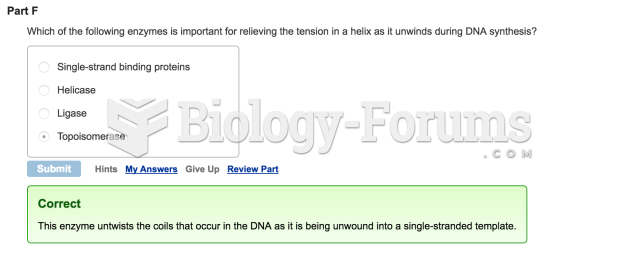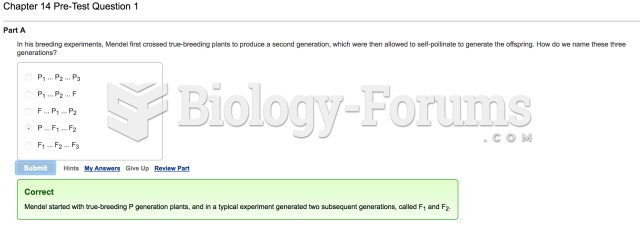|
|
|
The longest a person has survived after a heart transplant is 24 years.
Human kidneys will clean about 1 million gallons of blood in an average lifetime.
By definition, when a medication is administered intravenously, its bioavailability is 100%.
Immunoglobulin injections may give short-term protection against, or reduce severity of certain diseases. They help people who have an inherited problem making their own antibodies, or those who are having certain types of cancer treatments.
The average person is easily confused by the terms pharmaceutics and pharmacology, thinking they are one and the same. Whereas pharmaceutics is the science of preparing and dispensing drugs (otherwise known as the science of pharmacy), pharmacology is the study of medications.







